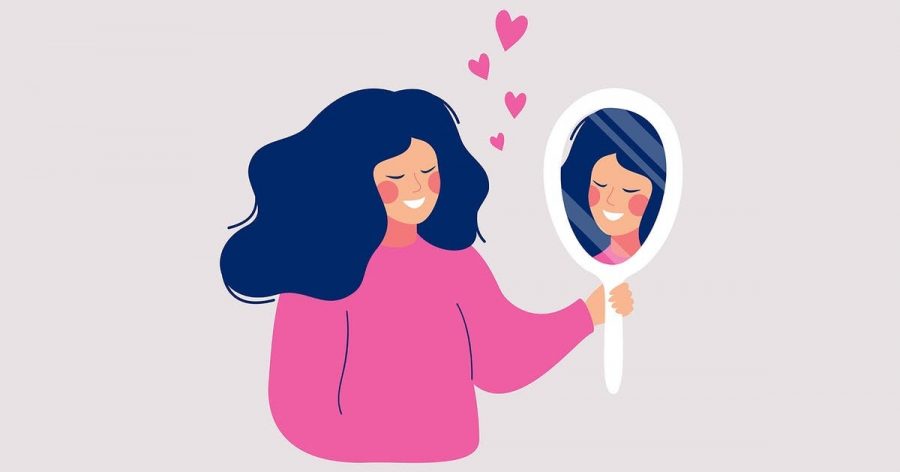The Difference Between Body Positivity and Body Neutrality
CW – eating disorders, mental health

It’s no secret that our society thrives on a hierarchy of external appearance. Especially in the age of social media, diet culture, and Facetune, the ideas constantly shoved down our throats have led to a generation of people convinced that they have to look a certain way in order to be socially accepted. In many cases, the existence of the internet, in general, has created a legion of toxic, impossible beauty standards for impressionable individuals to follow. According to the International Journal of Adolescent Medicine and Health, eating disorders are the third most common chronic illness among teen girls in the United States. But even in the worst of times, a light will always exist to offset the darkness. In this case, that is the body positivity movement. Nowadays, even a quick glance at the hashtag #bodypositivity will lead to an abundance of posts about people showing off their bodies and turning the tables on conventional standards of beauty. The message of “all bodies are beautiful” is echoed in videos with beautiful people of all shapes and sizes celebrating and embracing their so-called “imperfections”. However, while this seems like a major step in the right direction for inclusivity, representation, and diversity in the media, for many people it’s not that easy to just wake up one day and decide to love themselves, especially if they have struggled with self-deprecation and insecurity in the past. While the body positivity movement is creating a lot of good, it’s also creating an equal amount of bad. Some people may find it helpful to create a different mindset to help them become the best version of themselves they can be. In the end, it may not be body positivity that we are looking for but body neutrality instead.

The term “body neutrality” is unknown to many people, it is usually overshadowed by its larger, flashier counterpart. However, the movement has begun to gain traction more recently with many people claiming it to be a healthier, less stressful way of thinking that still allows for self-love and positive growth in mental health. According to psychiatrist Elizabeth Wassenaar in an interview with Time Magazine, this means that even if you aren’t feeling comfortable with your progress, it’s important to “accept your body as it is today.” So how is body neutrality different from body positivity? Although the two share a lot of the same characteristics, the key difference is that while body positivity focuses on the need to love one’s body no matter what, body neutrality shifts the focus away from physical appearance altogether. The key idea is that it doesn’t matter whether you think your body is the most beautiful thing on the planet or not, because, in the end, it’s simply just a vessel for your thoughts, ideas, and everyday processes. A quote from Healthline illustrates this perfectly. “Body positivity emphasizes the idea that everyone is beautiful. Body neutrality, on the other hand, simply proclaims that everyone is.” (Raypole) Basically, you’re more than the superficial barrier of your physical appearance. You’re a living, breathing person with never-before-seen ideas, and your body just exists to help that along. And if body positivity is more your style and it works for you, by all means, continue feeling gorgeous in your own skin. The point is, everyone’s different and pushing standards onto anyone no matter what your intentions are may lead to problems later on down the line.
We all have insecurities, and they won’t simply go away with claims of self-love and false happiness. For many, it’s a long and bumpy road on the journey to loving oneself wholeheartedly. But we can make a start. By simply acknowledging the work that our bodies put in every day, allowing us to eat, breathe, and walk, and feeling grateful for these experiences rather than beating ourselves up for not having a tiny waist or a perfect figure, we can take the first step on this journey. As Becky Wright from Happiful Magazine wrote, “Body neutrality feels like a white flag amidst the warzone of thoughts going on in my mind; I don’t have to hate or love my body, I just have to accept it as my body.” You are worth more than your outward appearance. You’re beautiful inside and out, and with the help of body neutrality, you may be able to realize this better.








